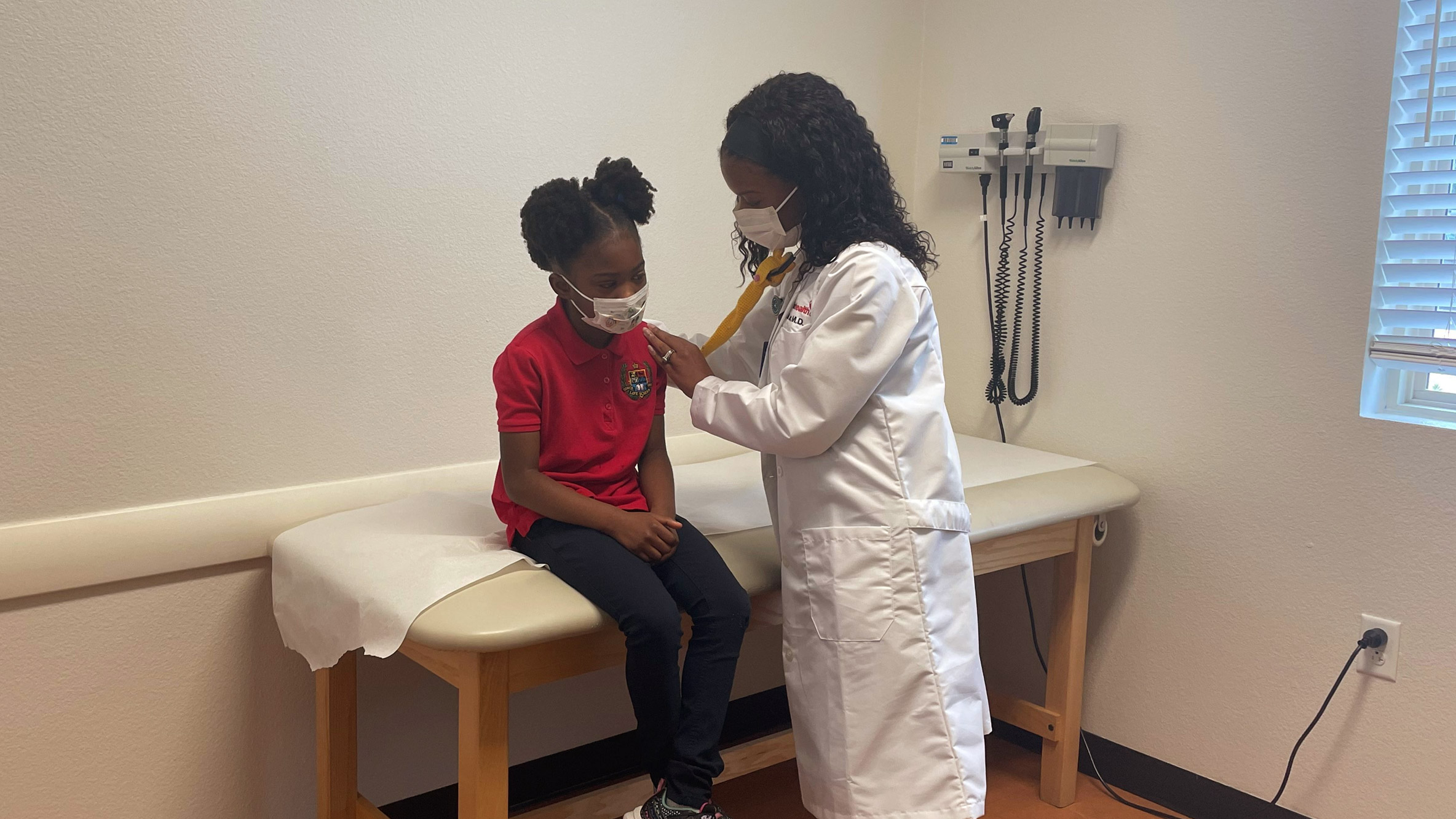DALLAS, April 7, 2022 — One in three children in Texas experience a mental health disorder in a given year – a number that continues to rise as a result of the COVID-19 pandemic. Early in the pandemic, the proportion of mental health-related emergency room visits increased 24 percent among children ages 5 to 11 and 31 percent among adolescents ages 12 to 17. The rate of pediatric emergency room visits for suicide is now double pre-pandemic levels.
To increase access to behavioral health services, North Texas donors have quickly assembled to help launch a new initiative that will enable pediatric patients to obtain mental health services in the primary care setting.
The new initiative is led by Children’s Health℠, one of the largest and highest-regarded pediatric health care providers in the country and the leading pediatric health care system in North Texas, in close collaboration with the Meadows Mental Health Policy Institute, a nationally recognized non-partisan policy and research organization helping Texas and national leaders shift the focus of new mental health care investments toward early intervention.
This groundbreaking pediatric mental health initiative is made possible by charitable contributions totaling $27 million to-date. Motivated by the dire public health need and the opportunity to create solutions that improve access to care and result in better long-term outcomes for children experiencing mental health conditions, lead donors include The Crystal Charity Ball, Hamon Charitable Foundation, The Constantin Foundation, Inc. and Kozmetsky Family Foundation.
“Our children are in a mental health care crisis, and it’s time to think differently about how we can address their needs as early as possible,” said Dr. Sabrina Browne, pediatric psychiatrist at Children’s Health and assistant professor at UT Southwestern Medical Center. “Early is always preferable; it increases the odds that suffering will be less and outcomes will be better. This initiative will empower neighborhood doctors’ offices, where families usually have regular access to a trusted pediatrician, to identify and address mental health needs. They are critical to providing children with the care they need when they need it.”
Through this initiative, pediatric primary care providers will be trained to identify and treat children and youth with mild-to-moderate mental health conditions in their daily practice with an initial focus on depression, anxiety and substance abuse. This is accomplished through integrated care, a comprehensive approach to patient care that combines evidence-based primary care and mental health services through enhanced screening, communication and coordination.
Mental health needs of children are at an all-time high, and currently there is a 10,000-to-1 ratio of children and adolescents to pediatric psychiatrists in Texas. Yet, nearly 80 percent of pediatric mental health conditions are mild-to-moderate and can be effectively treated in primary care settings when physicians have the proper tools and support. This new initiative will provide these resources to primary care providers, so their patients can avoid the often long wait times to see a psychiatrist or other specialist for treatment.
“By empowering community physicians with training and concrete supports, we can reach children in weeks rather than years, beginning to help them and their families as soon as symptoms first emerge,” said Andy Keller, Ph.D., president and chief executive officer of the Meadows Mental Health Policy Institute. “Care works best for all medical needs when delivered early. Proactive, early intervention through this pediatric mental health initiative will change lives for generations of Texans.”
The core of the pediatric mental health initiative will be training offered online and in-person at a Children’s Health primary care clinic, the first in the nation to serve as a learning laboratory and best-in-class provider of pediatric integrated care. The center, which will be temporarily housed at Children’s Health Specialty Center DeSoto and eventually move to its permanent location at the Reimagine RedBird development, will provide training and consultation to community pediatricians as well as evaluation and treatment for patients requiring specialty care. Pediatric providers will have access to computer-based training, peer-to-peer learning communities and opportunities to shadow integrated care providers and receive technical assistance. They can also be linked to additional supports to help them broaden and sustain their integrated mental health care capacity.
“Donors have rallied generously to make this initiative possible,” said Brent Christopher, president of Children’s Medical Center Foundation. “As the initiative grows and more physicians in our community are trained, that ongoing support will continue to be vital. Donors are encouraged to reach out for more information about opportunities to make life better for children by meeting their mental and behavioral health needs.”
